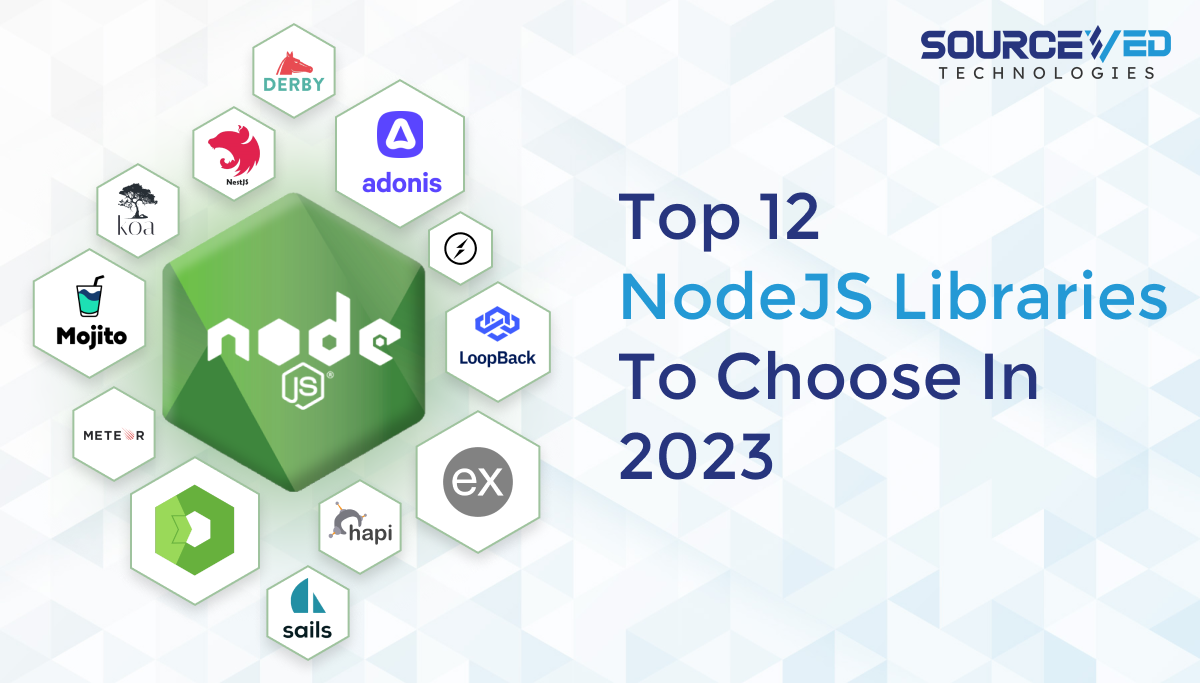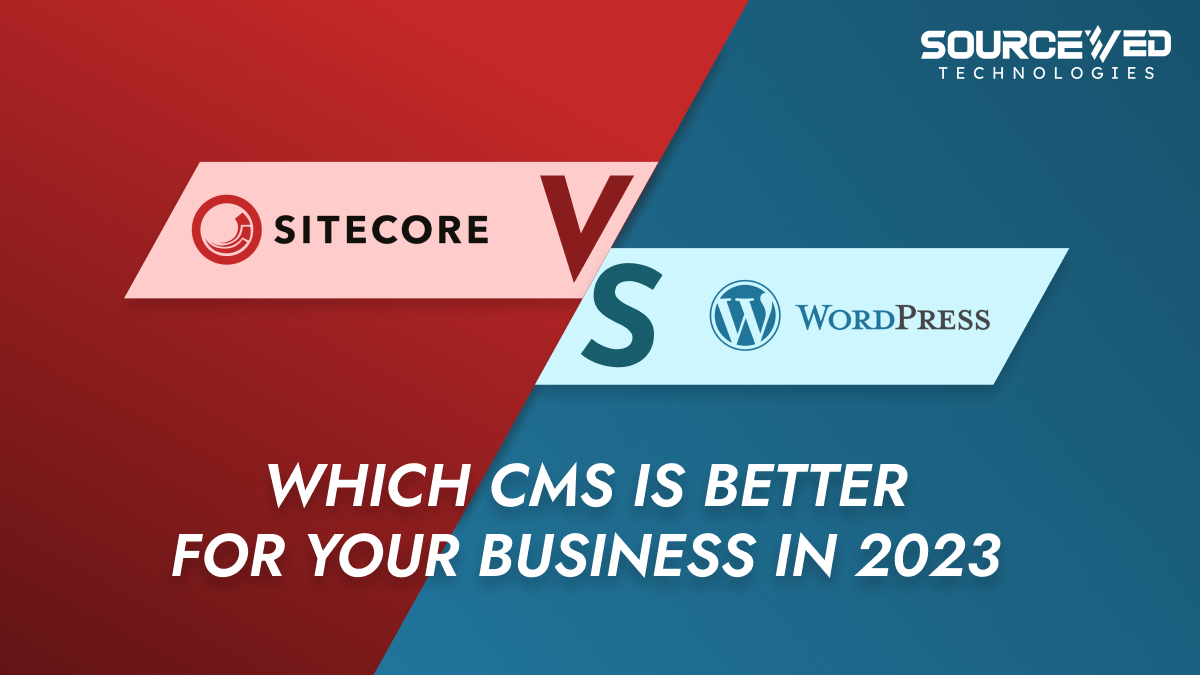Node.js libraries are collections of pre-written JavaScript code that can execute a specific job or group of functions. As examples, we may think about dealing with HTTP requests, the file system, and developing server-side apps. The npm package manager, included with Node.js, is commonly used to install third-party libraries. Incorporating these libraries into your Node.js projects may speed up development and reduce errors.
How to use Nodejs Libraries?
Node.js libraries will continue to play a significant role in web development far beyond 2023. These libraries facilitate the creation of reliable, scalable, and efficient software. The libraries for Node.js are constantly changing, and new libraries are being created to keep up with the rising demand. This post provides a 2023 perspective on using Node.js libraries.
To begin, you must have a firm grasp of what Node.js libraries are and why they matter. The term “library” refers to a pre-written piece of code in Node.js that may be used for a particular purpose. These libraries alleviate burdens on programmers by providing pre-built functions for frequent tasks. To effectively use a Node.js library in 2023, you must be familiar with the language’s fundamentals. Because most Node.js libraries are written in JavaScript, you should be familiar with the language.
Once you’ve got the hang of things, you may install more Node.js libraries with the help of the Node Package Manager. Node.js’s default package manager gives developers access to thousands of functional modules and packages. In the terminal, run “npm install [library name]” to set up a library. After the library has been added to your project’s dependencies, you may start using it immediately.
Top 12 Node.js libraries in 2023
1. Total.js
Like Laravel for PHP or Django for Python, Total.js is a web framework developed entirely in JavaScript. The app development process may be completed rapidly and independently using the Total.js framework. It provides dependable services and the adaptability to create a wide variety of IoT applications.
Features of Total.js:
- The NoSQL database in Total.js streamlines the app development process.
- A simple Mail Transfer Protocol and a Modular Coding Structure are the only two features in the Total.js framework.
- Complete front-end development is possible with Total.js since it is compatible with many database systems.
2. Derby.js
The MVC architecture is used in Derby.Js. You may build real-time applications using this framework. Data synchronization between client and server is possible via Derby.js’s built-in conflict resolution functionality.
Features of Derby.js:
- Derby.js has a fast data synchronization engine called the Derby Racer, which ensures perfect data consistency between the server, the app’s database, and the users’ browsers.
- Derby.js enables programmers to build interactive websites in real time.
- Many coding variations are possible using Derby.js.
- Because scripts may be written in both directions, client and server-side features can be refined.
3. Hapi.js
To facilitate communication between servers and clients, Hapi.js is a top-tier REST API framework built on top of the Node.js platform. Compared to Express.js, this framework has gained much popularity as a strong contender. To take command of server processes, the Hapi.js framework was developed. Another free and open-source option for building a server is Hapis.js.
Features of Hapi.js:
- There is the potential for dynamic content delivery using Hapi.js.
- Hapi.js is extensible and built on a plugin system. Using these add-ons, developers may build instant messaging programs in real-time.
- Comprehensive API documentation and dedicated generating support are both available with Hapi.js.
4. Socket.io
Socket.io is a JS library for developing a real-time web app that paves the way for web apps and servers to communicate in real-time in both directions. Socket.io has two components: a browser-based client library and a Node.js server library. Developers use Socket.io because it reduces bugs and helps apps launch faster. The library’s easy-to-use API allows for flexible service integration.
The features of Socket.io
- Among its many valuable features, Socket.io has auto-correction and can spot anomalies.
- The server and the web may exchange information in both directions with the aid of Socket.io.
- With the assistance of Socket.io, programmers may transmit uncontaminated streams from the server to any client browser.
5. Mojito.js
Mojito.js is a source-controlled, modular split testing framework that facilitates Git/CI project development, deployment, and analysis. Modules of the framework’s extensive API may make REST requests, run code, and handle cookies and assets.
Features of Mojito.js:
- Mojito.js extends its capabilities using Y.Base.
- Mojito.js makes it simple to coordinate both server and client-side elements.
- Web applications may be made quickly using Mojito.js.
- With Mojito.js, you may continuously create an app.
6. Sails.js
Sails.js was built on the Node.js framework, a model-view-controller online application framework. The code generators used by this framework allow for the rapid development of complex web applications. Due to the framework’s high level of interoperability, web developers may use it easily to build browser-based apps.
Features of Salis.js:
- Salis.js use Express.js to handle incoming HTTP requests.
- When it comes to front-end platform development, Salis.js has a lot of compatible sites.
- Several frameworks have similarities with the MVC architecture.
- Through Object Relational Mapping, Salis.js offers its users the information they need.
7. Adonis.js
One of the most widely-used Node.js API frameworks is Adonis.js, thanks to its appealing design and ease of implementation. This framework helps develop robust web applications from the bottom up. Programmers may create reliable server-side applications using the resources made available by the Adonis.js ecosystem.
Features of Adonis.js
- Adonis.js delivers consistent ecosystems to reduce developers’ time choosing between different packages.
- Fast updates to ongoing projects are possible using Adonis.js.
8. LoopBack.js
LoopBack is an open-source and highly-extensible Node.js framework for rapidly building scalable RESTful APIs. The LookBack.js package includes a fun API website browser and a straightforward CLI.
Features of LoopBack.js
- With this toolkit, developers can whip together software development kits (SDKs) and docs for their APIs in no time.
- To any database, from SQL to Oracle to MongoDB, Lookback.js can connect.
- The ability to work with various databases is what sets LookBack.js apart from similar tools.
9. Meteor.js
Meteor.js is an isomorphic JS web framework built on top of the Node js server that is available to the public at no cost. Swift prototyping is possible with Meteor.js, and the code it generates is portable across several platforms. With its safe and reliable framework, Meteor.js simplifies the creation of new apps.
Features of the Meteor.js Framework:
- When using this framework, developers may avoid starting from scratch when creating a mobile app.
- Because of its lightweight design, Meteor.js is a popular choice for web development. Code size is decreased by using this function.
- Integrating Meteor.js with popular frameworks like Mango, React, and Vue is easy.
10. Koa.js
Koa.js is a lightweight, customizable, and modular Node.js framework with a wide range of online and mobile development support. Koa.js was developed by the same team that produced Express.js. Koa.js is a lightweight yet robust and expressive language that supports web apps and API generation. There is no central middleware in Koa.js. Koa’s async functions make it possible to take on error handling, a crucial issue. Koa, on the other hand, provides a magnificent array of ways that speed up and spice up the application development process.
Features of Koa.js:
- Koa.js provides a high degree of flexibility, letting programmers work on projects immediately.
- Koa.js has a more robust error-handling mechanism since its generators may restrict the usage of callbacks.
- Koa.js’s middleware is fundamentally bundled together in a package. This guarantees a smooth and quick experience while putting data onto a server.
11. Nest.js
Regarding Node.js frameworks for developing advanced backend systems, Nest.js is among the most comprehensive, flexible, and forward-thinking options. It has more users than any other TypeScript-based Node.js framework.
Nest.js is a tool that is underappreciated when it comes to creating decoupled apps. It cleverly improves state-of-the-art for scalable Node.js servers. In terms of database management systems, Nest.js is compatible with MySQL, MongoDB, and PostgreSQL.
Features of Nest.js
- Nest.js employs Angular.js for robust front-end growth.
- Due to its modular design, Nest.js separates code into its components.
Nest.js allows you to build custom web applications with various features.
12. Express.js
Express is a minimal Node.js framework for building fast, scalable online and mobile applications. The most incredible thing is that Express works well with a wide variety of open-source modules that can be downloaded from the NPM public module repository without difficulty. Express.js is packed with a robust API in addition to its many valuable features. Also included is what we call “intentional functionality,” which is designed with peak efficiency in mind. This deliberate feature of Node JS will never interfere with its other features.
Features of Express.js
- Express.js has a model view controller feature that facilitates the development of one-of-a-kind applications.
- Express.js is comparable in purpose to a routing table or a set of routing modules.
- Express.js uses more than fourteen engine templates, HTTP methods, and synchronization to improve efficiency.
- Injecting high-demand packages into Express.js helps the framework grow in functionality.
Conclusion
Do you still need help choosing the proper Node.js framework for your next project? Sourceved Technologies, as the top NodeJs development company, can help and guide you.
NodeJs libraries make application development effortless by offering advanced capabilities. At Sourceved, we upgrade ourselves with the newly released technologies to deliver superior quality NodeJs solutions.
So, if you are looking for expert guidance in choosing the right NodeJs framework for your applications, you can avail of our NodeJs consulting services. Our expert NodeJs consultants and developers will help you select a suitable framework based on your project needs. Reach out to us at info@sourceved.com to book a free consultation.








Leave A Comment